The two new players in Papua New Guinea’s TV industry this week began selling their set top boxes as they launched a total of 54 new free-to-air and pay channels.
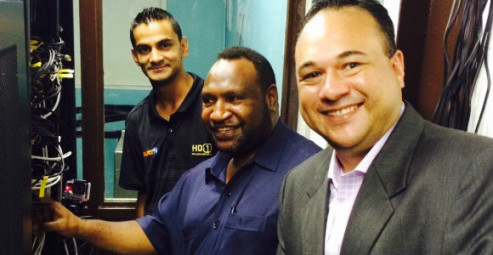
Click TV’s Engineering Manager; Reenal Deo; PNG’s Minister for Finance James Marape and MD Richard Broadbridge.
Global telecommunications giant Digicel this week launched Digicel Play, which will offer 29 channels by the end of 2014, while the new entrant to the PNG market, Click TV, launched its own set top box, which will offer 25 channels through its local network, PNG TV.
The development reflects a radical change in the media landscape, which sees Digicel’s main competitor, Telikom PNG, currently undertaking due diligence ahead of its expected purchase of free-to-air commercial broadcaster, Fiji TV-owned EMTV.
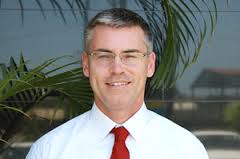
Digicel’s John Mangos
The content each new player is offering is markedly different, as it their method of delivery.
‘We enter the TV market with a mission to provide the best content and an affordable means of accessing it-nationwide,’ Digicel CEO John Mangos said at the official launch last week.
‘What’s more, from now until mid-January we will offer all customers free access to all channels.’
Programming
Digicel Play’s programming range includes British Premier League [sic], CNN, MTV Asia, Nickelodeon, Comedy Central, History, and Deutsche Welle International News. Its free-to-air channel, TVWAN, offers SBS News Australia and the ABC children’s show, Bananas in Pyjamas.
PNG TV offerings feature live and delayed High Definition sport, including the next year’s Pacific Games, as well as TVNZ news and a range of educational and religious content from Hope Channel to the Seventh Day Adventist Church.
‘Our business model is based on certain fundamentals and one of them is more religious, more educational content,’ Click TV Managing Director, Richard Broadbridge told Business Advantage PNG.
’What we want to do is be a profitable business, we simply don’t have the capital or distribution platforms to make us the biggest.’
‘We have a strong relationship with the Seventh Day Adventist Church and that will be providing to us a certain element of local content where we want to provide more religious, more educational content, especially for rural PNG.
‘It’s never been our vision to be the market leader.
‘But we also have certain relationships with other distributors,’ he says.
‘We have interests in Fiji so there’s a lot content sitting in Melanesia, that’s already being produced that we would like to bring into the market.
’What we want to do is be a profitable business, we simply don’t have the capital or distribution platforms to make us the biggest.
‘What’s more, from now until mid-January we will offer all customers free access to all channels.’
While Digicel is primarily using its mobile phone towers to reach its audiences, PNG TV has signed a five-year deal with Intelsat to beam its programmes not just across PNG but the Pacific.
Viewer access
‘Right now,’ says Click TV Managing Director, Richard Broadbridge, ‘if you go into any part of the Highlands you need very large dishes to get local content.
‘To get international content you need a separate dish for the international channels. But our commercial model is based on the ability to compress about 30 channels into a one-metre receiver dish.
Broadbridge also intends subleasing mobile phone towers from state-owned wholesaler PNG DataCo, which is taking over the transmission assets of Telikom PNG.
‘Currently in Port Moresby, we have one tower and we are co-locating with Telikom on two others.
‘We are rolling out co-location with Telikom on two towers in Lae in February. So it’s highly likely the future of our business is based on co-location.
‘There’s no point in spending capital on towers, when we can spend it on good local content,’ he says.
Local ownership
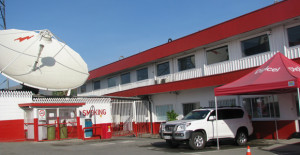
Digicel PNG’s head office in Port Moresby
Broadbridge is also talking to local investors and expects Click TV to be majority PNG-owned during 2015. There is talk of government will introducing foreign media ownership laws into parliament over the coming months which will restrict foreign owners.
‘Currently the company is owned by two Fijian citizens and we talking to institutional investors right now. That will also see capital injection of around K21 million into Click TV.’
Pacific broadcasting
Broadbridge intends making use of the opportunity afforded by the Intellsat-19 satellite to provide programming across the Pacific. And he intends accessing programming from Pacific nations for use on PNG TV.
‘You need PNG’s numbers to justify further capital expansion. In Fiji, Samoa and Tonga, the numbers are just too small to justify any sort of investment like this.
‘You take on the incumbents but copying their business model simply won’t work. So we needed the potential of 300,000 to 400,000 subscribers in PNG to justify at least some stable income to go to the rest of the Pacific.’
‘But our major focus is PNG. We are a PNG company and that’s our priority.’
The post Two new Papua New Guinea TV players launch pay and free-to-air channels appeared first on Business Advantage PNG.
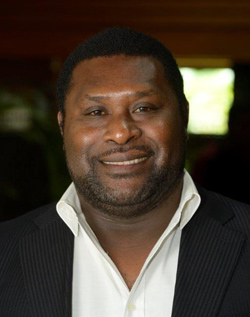
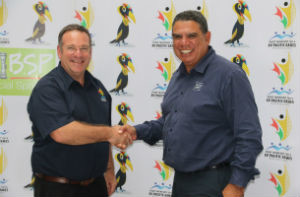
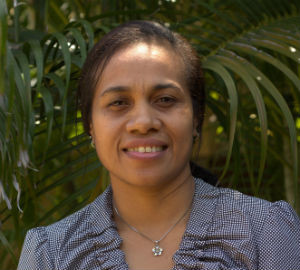
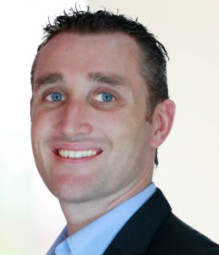



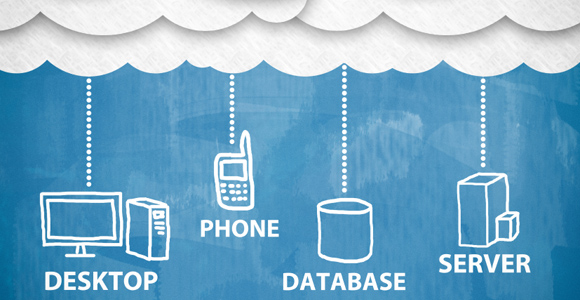 E-commerce, mobile technologies, cloud computing and the Internet of Things (IOT) are increasingly topics not just for first world economies but for developing economies such as Papua New Guinea.
E-commerce, mobile technologies, cloud computing and the Internet of Things (IOT) are increasingly topics not just for first world economies but for developing economies such as Papua New Guinea.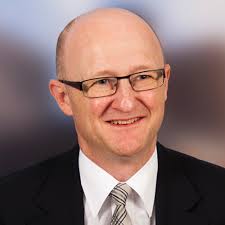
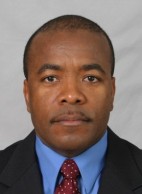

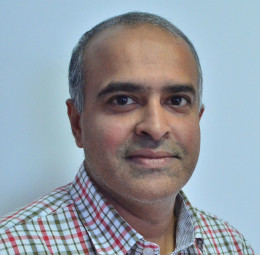
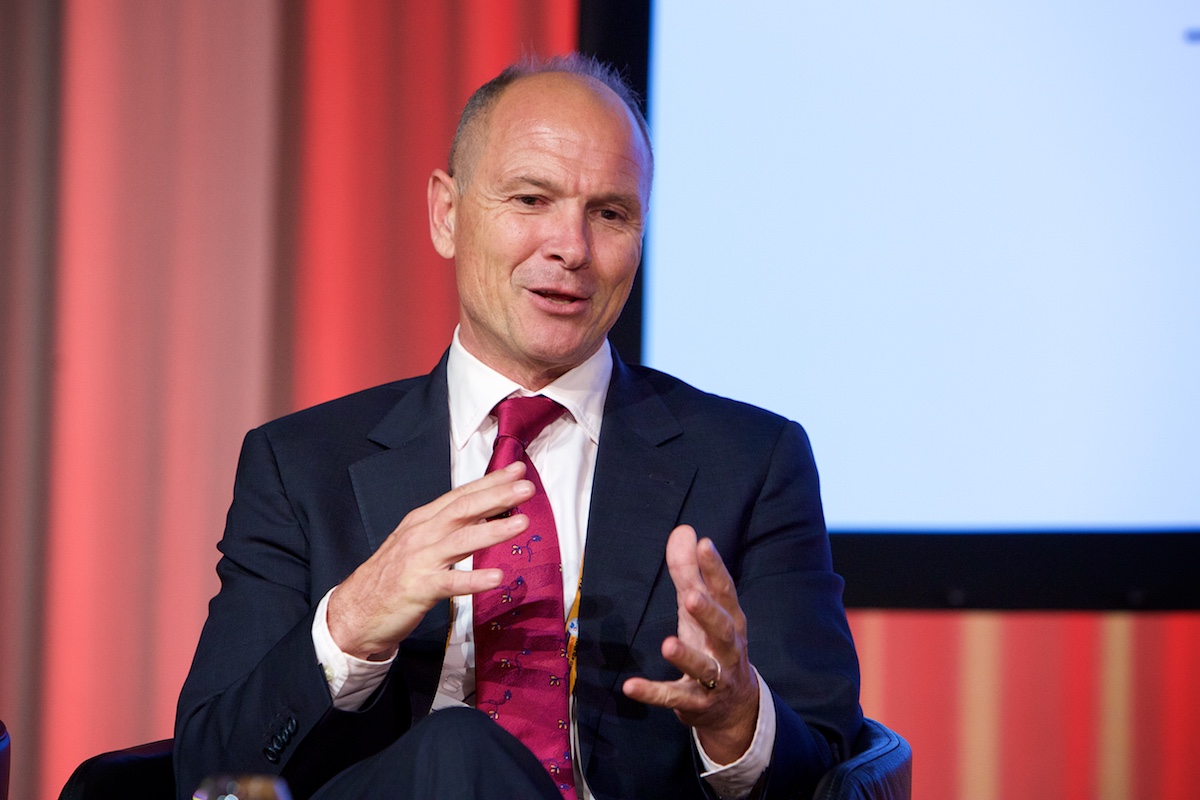
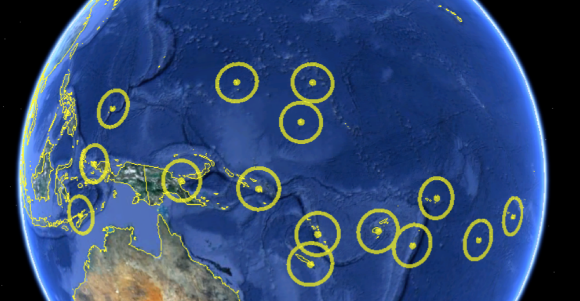
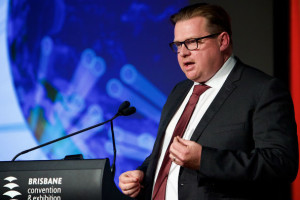
 If you have an iPad or iPhone, you may have noticed that Apple has recently released a new operating system for your device (
If you have an iPad or iPhone, you may have noticed that Apple has recently released a new operating system for your device (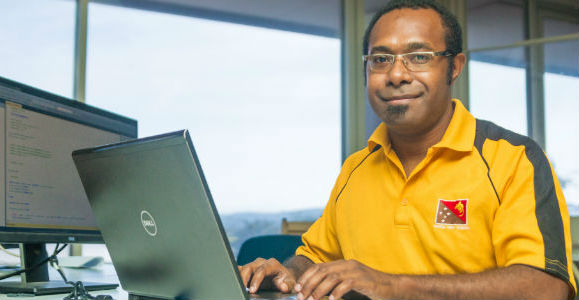

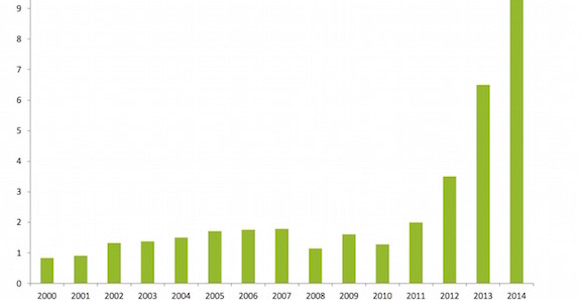
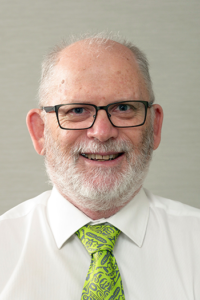


 The
The 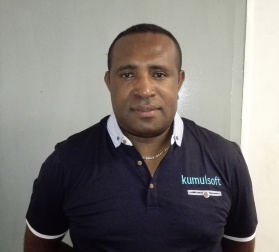
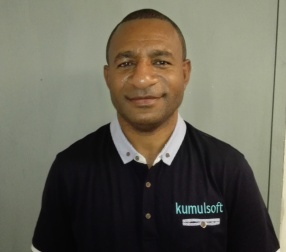
 The creation of Papua New Guinea’s K685 million (US$313 million) National Transmission Network (NTN) aims to provide fast and reliable broadband to the country’s major population centres by connecting them to the international gateway in Madang on PNG’s northern coast.
The creation of Papua New Guinea’s K685 million (US$313 million) National Transmission Network (NTN) aims to provide fast and reliable broadband to the country’s major population centres by connecting them to the international gateway in Madang on PNG’s northern coast.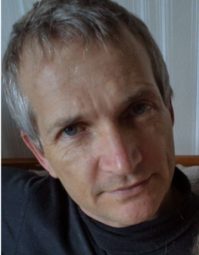
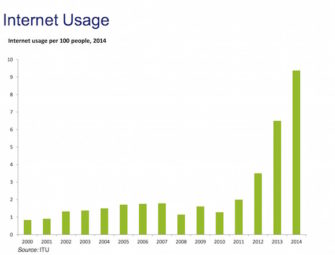
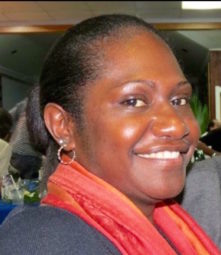








 ‘It’s no longer about digital marketing; it’s about marketing in a digital world.’ So argued the keynote speaker at the 2016 edition of the Festival of Marketing, Keith Weed. The festival was held in London’s Docklands last month.
‘It’s no longer about digital marketing; it’s about marketing in a digital world.’ So argued the keynote speaker at the 2016 edition of the Festival of Marketing, Keith Weed. The festival was held in London’s Docklands last month.
